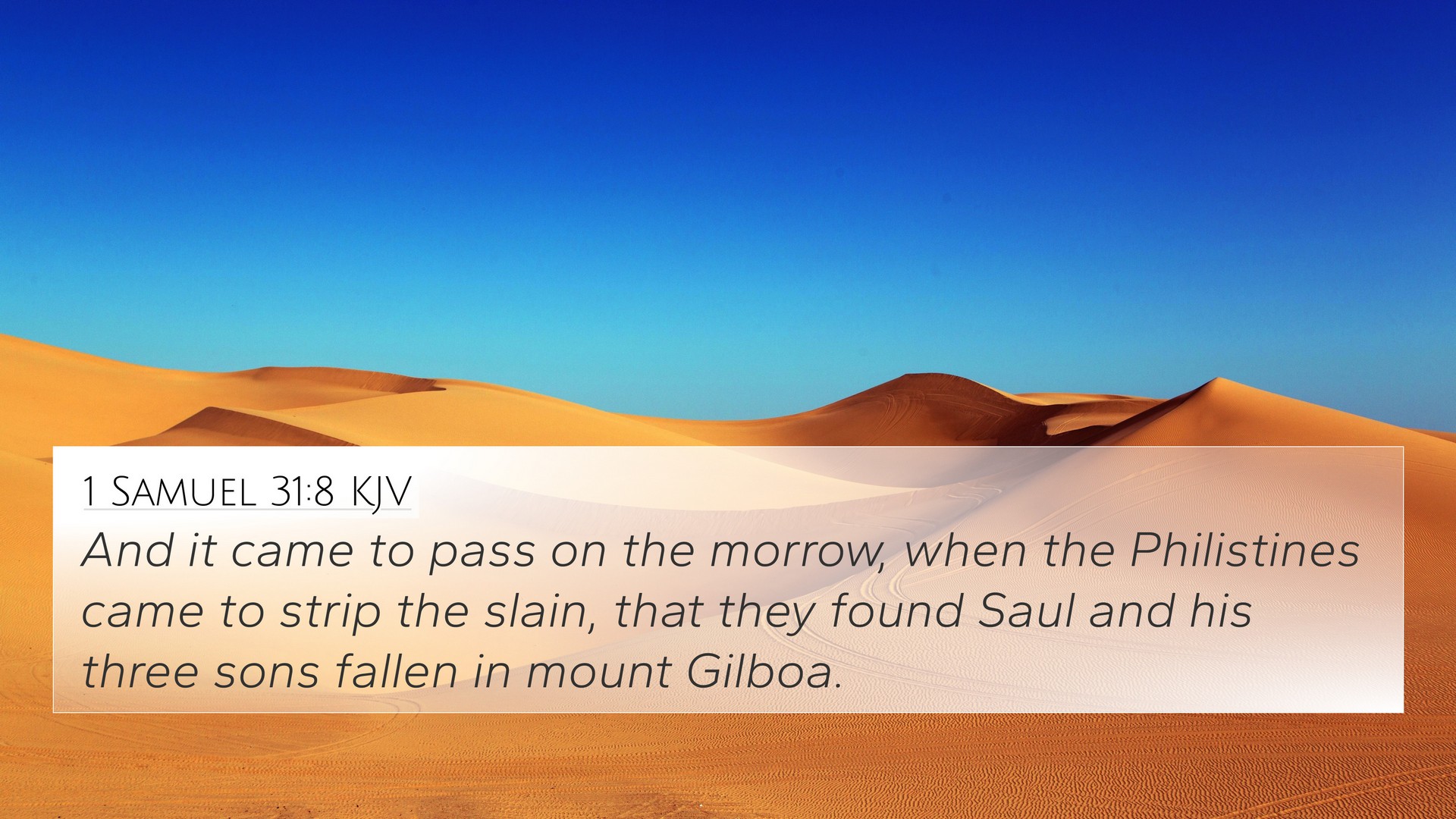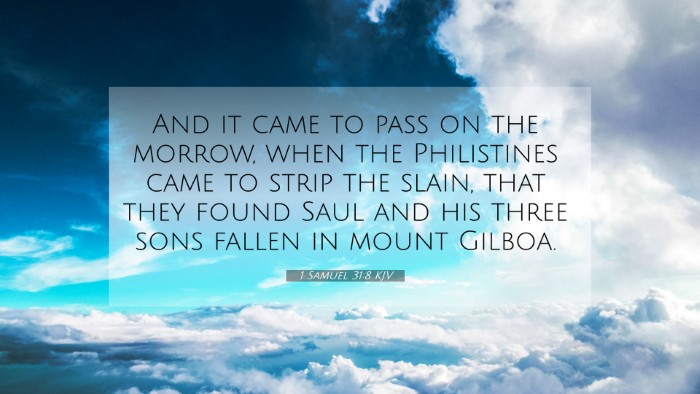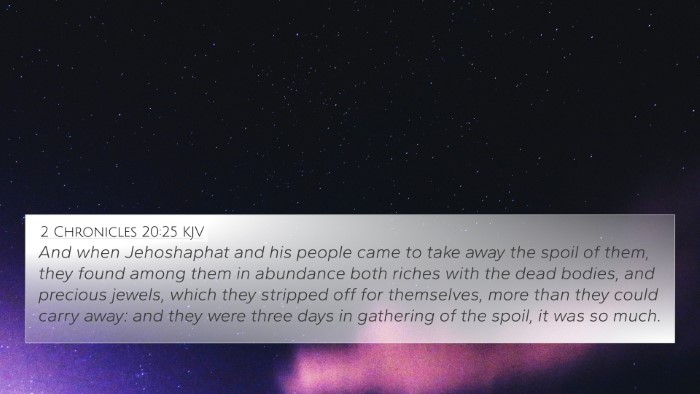Understanding 1 Samuel 31:8
1 Samuel 31:8 states: "And it came to pass on the morrow, when the Philistines came to strip the slain, that they found Saul and his three sons fallen in mount Gilboa."
Overview of the Verse
This verse describes a tragic moment following the battle on Mount Gilboa, where King Saul and his sons died. It underscores the dire consequences of conflict and the vulnerability of leaders in times of war.
Commentary Insights
Matthew Henry's Commentary
Matthew Henry emphasizes the somber reality of this moment, noting that Saul's death signifies the end of his kingship and the tragic culmination of his life marked by disobedience to God. Henry reflects on the loss this represents not only to Saul’s family but also to the nation of Israel, which must now grapple with the leadership vacuum left behind.
Albert Barnes' Commentary
Albert Barnes offers insights into the significance of the Philistines' act of stripping the slain. He notes how this act symbolizes the total defeat and humiliation of Israel’s leadership. The loss of Saul, who was once anointed by God, is highlighted as a warning against turning away from divine guidance.
Adam Clarke's Commentary
Adam Clarke discusses the historical context, providing a detailed account of the political landscape at the time. Clarke suggests that Saul’s downfall was a consequence of his earlier failures, and this tragic end serves as a profound lesson on the importance of fidelity to God's commandments.
Cross-References and Thematic Connections
To fully grasp the implications of 1 Samuel 31:8, we can explore various cross-references that illustrate themes of leadership, failure, and divine judgment. Below are key Bible verses that relate to this passage:
- 1 Chronicles 10:8-12: Details the aftermath of Saul's death and the actions taken by the people of Jabesh-Gilead to honor him, highlighting the respect he had among some of his subjects.
- 2 Samuel 1:1-16: Chronicles the report of Saul's death, showcasing David's reaction and the significance of Saul's demise in relation to David's ascension.
- 1 Samuel 15:26-29: References God's rejection of Saul as king, putting the focus on Saul’s earlier disobedience and judgment.
- Proverbs 16:18: “Pride goes before destruction, and a haughty spirit before a fall.” This reflects Saul’s pride and eventual downfall.
- Hebrews 10:31: “It is a fearful thing to fall into the hands of the living God.” This verse underscores the severe consequences of disobedience to God, highlighting the judgment Saul faced.
- 1 Samuel 28:17-19: Illustrates Saul's visit to the witch of Endor, showcasing his desperate situation and estrangement from God, preluding his tragic end.
- Psalm 52:5-7: Describes the fate of the wicked, resonating with the narrative of Saul, who strayed from God’s path and faced dire consequences.
Thematic Reflections
This verse invites reflection on several themes common throughout the Bible:
- The Fate of Leaders: 1 Samuel 31:8 reveals the vulnerabilities of even the most powerful leaders, encouraging readers to consider the weight of leadership and its responsibilities before God.
- The Consequences of Disobedience: Saul's refusal to follow God's commands led to his downfall. This theme resonates in various biblical passages, reinforcing the serious nature of following divine guidance.
- Divine Judgment: The narrative illustrates the concept of God's judgment manifested in historical events, linking to broader discussions in both the Old and New Testaments about divine retribution.
- Hope and Redemption: Despite the tragedy, the story paves the way for David's rise as a leader, symbolizing hope and the possibility of redemption after failure.
Practical Applications
Reading 1 Samuel 31:8 with the insights from various commentaries and related scriptures can lead to profound personal reflection. Here are key takeaways:
- Recognize the importance of humility and obedience to divine instruction in all aspects of life.
- Understand the responsibilities that come with leadership, and the impact of one’s actions on others.
- Acknowledge that failure, while painful, can lead to transformation and new beginnings.
- Engage with the community and tradition of faith to learn from the successes and failures of biblical figures.
Conclusion
In summary, 1 Samuel 31:8 serves as a poignant reminder of the interplay between leadership, disobedience, and divine judgment. It compels the reader to reflect on the broader messages within Scripture regarding obedience, the severity of consequences, and the unwavering hope of redemption. For those seeking deeper understanding through cross-referencing Biblical texts, this verse provides a rich foundation for thematic exploration and personal growth.




